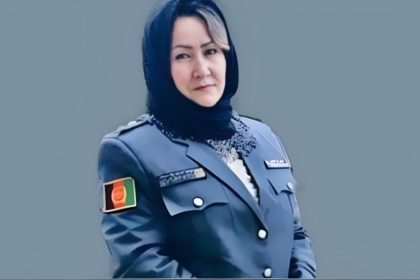RASC News Agency: Afghanistan’s current configuration, once an integral part of Greater Khorasan, materialized as a geopolitical chessboard between the colonial powers of England and Tsarist Russia. Colonizers believed that the Afghan Pashtun ethnic group, due to cultural lag, tribal structure, and economic needs, could be easily exploited. Consequently, the colonizers designated Afghans or Pashtuns as key players in Afghanistan’s political arena, shaping the identity of Afghan Pashtuns as both a colonial instrument and the seductive prey of Afghan fascism, imposed upon all inhabitants of this land.
In this context, some unwitting and opportunistic non-Pashtuns have embraced this cultural colonization, incorporating terms like “Afghan” and “Afghani” into their political and cultural literature as national identity. However, the reality is that Afghanistan lacks a concept of nation, national culture, or national identity. What is now imposed as the national culture on the people of this land reflects the violent cultural ethos of Pashtun tribes spilling over from both sides of the Pakistan – Afghanistan border.
The direct interventions of English, Russian, and American colonialists, along with their puppet rulers, namely the Afghan emirs and kings or “Pashtuns,” have intricately disrupted the trajectory of cultural development and blossoming in the fields of poetry, art, politics, ethics, and beyond in this land, keeping the people of this region centuries behind the caravan of civilization and human progress.
In their grand strategy, the colonialists have perceived Persian culture and language as a cultural rival, consistently harboring animosity towards it. They have often cited the enmity of English colonialists with the Persian language in India and the hostility of Russian Bolsheviks with the Persian language in Bukhara as prominent examples of their historical resentment against the Persian language and culture. However, Afghan nationalists, who have been both companions and adversaries on the path of colonization, have failed to comprehend the colonization agenda, interpreting it as sustenance for their tribal kin. they have allied themselves with the drumbeats of enmity against the divine and spiritual Persian language and culture in the hope of dominion over their tribal language and culture, Oblivious to the fact that the path to linguistic and cultural dominance seeks love, art, literature, mysticism, piety, and knowledge.
The development of the Persian language is the product of the profound thoughts of Abu Hanifa, the pen of Ghazali, the love of Rumi, the exile of Hafez, the philosophy of Avicenna, the science of Abu Reyhan, the honor of Ferdowsi, and the discourse of Jami, Khaqani, Roudaki, Parvin, Khalili, and hundreds of Persian-speaking theologians, philosophers, poets, mathematicians, and astronomers over centuries. The deceitful sword of colonialism will yield nothing but bloodshed and treachery, and the uninformed enmity of Pashtun nationalists towards the Persian language is nothing more than a dance for the bloodthirsty and cunning colonialism.
On the other hand, throughout history, the Persian language has played the role of a benevolent mother to the Pashtuns. It has served as the sole beacon, illuminating their clear perspective towards the world of knowledge and enlightenment, acting as a guide to navigate through their interpersonal challenges in the global human community, Which Pashto Language Poets like Khushal Khan Khattak and Abdul Rahman have eloquently understood this, portraying Persian as the illuminating force guiding Pashtuns. However, Afghani nationalism, resembling a “puppet of night camp revelry” for both old and new colonialism, has, in reality, struck a blow at its own maternal figure. From Abdul Rahman to Amanullah, Mahmud Tarzi, Karzai, Ghani, and Hebatullah Akhundzada, with their concocted historiography, have engaged in mental manipulation, distorting the minds of the people and diverting them from the historical truths of this country. In both written and oral literature, in state-run media, and in educational textbooks, they have alienated Persian language and culture, defining it as foreign. They have fabricated an origin for the Pashtun tribal culture, weaving a web of deception so intricate that the word “Afghanistan” has, over centuries, been erroneously associated with the name of this country.
The tribal systems of Afghan “Pashtuns” have sanctified and historicalized the construction process of the terms “Afghan” and “Afghanistan” to such an extent that any criticism thereof is seized upon, framing any discourse on this grand falsehood as a form of insult to the esteemed Pashtun community, exploiting this confusion and even striking their own power stakes under the shadow of colonialism, impacting all the impoverished people of this land, including the Pashtuns themselves. The shadow of this colonization coercion has also befallen some non-Pashtun individuals, leading them to subjugation and a misguided neglect of their own identity, inadvertently identifying themselves as Afghan.
While in reality, “Afghan,” Afghani culture, and the term “Afghani” are associated with both sides of the border between Afghanistan and Pakistan, the fundamental truth is that the Persian language and literature have been the language of all ethnic groups and communities in this region. Most scholars in this geography have spoken and written in Persian, and the majority of the rulers, from Sultan Mahmood Ghaznawi to Ahmad Shah Abdali, have identified themselves as the kings of Khorasan and heirs to the Persian language and literature.






